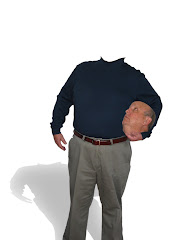Wednesday, April 19, 2006
I love my Yamah Clavinova -- here's a wonderful story about it
Yamaha Clavinova Aids Recovery Of Young Brain Tumor Survivor
— High–Tech Digital Piano Offers Therapeutic Benefits to 31–Year–Old Florida Resident —
MELBOURNE, Fla.—"It's a strange story," muses Carol Riley, reflecting on her son Anthony's long journey towards recovery, following surgery four years ago to remove a brain tumor. More importantly, it's a story of how her resourcefulness, determination and hope, as well as the aid of a Clavinova digital piano, is helping the 31–year–old to overcome significant physical and mental challenges.
Anthony Heleno and his classmates enjoy a Clavinova Connection session at the Piano Distributors Store in Melbourne, Florida. Though he had done well initially, Anthony later suffered from a severe post–operative complication: a blood clot in the brain. Damage from the clot created a condition called ataxia, which can occur when parts of the nervous system that control movement are damaged. Anthony's symptoms are similar to the aftermath of a stroke, including short term memory loss and weakness on his left side. As Carol researched therapies to help her son, Anthony's doctor explained the benefits of Interactive Metronome Therapy, a treatment program designed to promote and enhance brain performance and recovery in people with cognitive damage, by supporting the brain's inherent ability to repair or remodel itself. While the prospect seemed exciting, "insurance wouldn't cover it," Carol recalls.Soon thereafter, Carol visited the local Piano Distributors store in Melbourne to inquire about purchasing a metronome, hoping to replicate the therapy in a less expensive way. While the store does not carry individual metronomes, store manager Judy Hanley showed her another tool that could help the Yamaha Clavinova digital piano. "I thought it was terrific," recalls Carol, who had been considering purchasing a keyboard for herself. "Judy explained that the Clavinova had a metronome in it, and demonstrated how you can practice using only one hand or another. As she was showing this to me, I thought this might work, it might force him to use his left hand more and to learn scales.'" Virtually all of Anthony's medical and psychological referrals pointed to the value of music, so she purchased the piano in the summer of 2005 and enrolled along with Anthony in the store's Clavinova Connection class, and subsequently for private lessons as well. "Everything I have read regarding music is that it is a mind stretcher'," says Riley. "It's hard for him to learn new things, but the Clavinova has helped him with his short term memory. The repetition helps. He's coming along; he's finally learning to read music and he has a good ear." "I think this is a good tool for our tool box," continues Carol. "I am always trying to come up with new therapies. Insurance only funds you for a few weeks, so you need to be creative." By all accounts, the combination of therapies, including building muscle strength with a personal trainer, has resulted in a "significant increase in what Anthony can do physically with his left side." "Because of Clavinova Connection, Anthony was able to play popular songs that he enjoyed and identified with," notes Judy Hanley. "Using the Follow Lights system, the program helped build his confidence and provided a strong foundation for additional studies." Cindy Read, Anthony's private piano teacher at Piano Distributors has also noted significant progress. A seasoned instructor with 20 years of experience, she cites the Clavinova's Follow Lights system as being beneficial in helping Anthony concentrate on strengthening his left side. "In January, when he started private lessons, his hand would shake," explains Cindy, who has worked with several students afflicted with both strokes and Parkinson's disease. "The process of focusing on a specific key would make his fingers start to 'stutter'. What he's been able to accomplish in three short months has been amazing." For his part, Anthony, who especially enjoys the Clavinova's Drawbar Organ voice, says, "It helps me play anything; it's user friendly." While he admits "my memory is pretty bad," he notes, "I'm gaining mental agility every day." In addition to the therapeutic benefits offered by the piano, Carol also appreciates its musical versatility. "It enables you not just to play simple things like Mary Had A Little Lamb,' but things that actually sound like music. It's been pretty nice."
